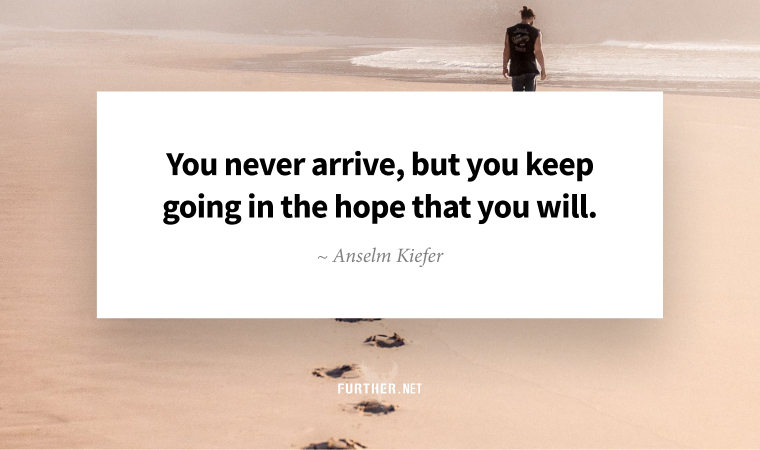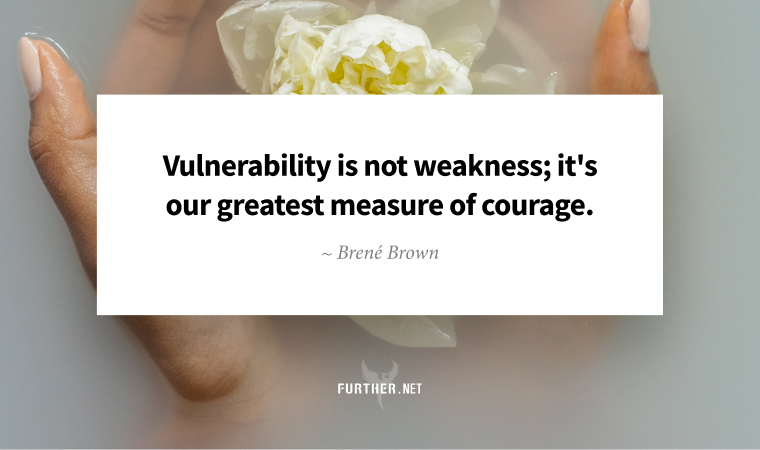
We’re approaching the end of 2023, and Further is about to take a holiday break where we start preparing for a pivotal 2024.
It’s an interesting time of change. Our generation has been defined by big changes, and we’re likely facing the most consequential shift of all.
Next year, every Baby Boomer will be age 60 or older. That means in 2025, the first Gen Xers start turning 60.
By 2030, every Baby Boomer will be over 65, Gen Xers start turning 65, and Millennials start turning 50 (!!). This is a significant tipping point, as we find ourselves living in an older society without precedent.
People are living longer healthier lives, while birth rates have been plummeting for decades. We’re in what many are calling a perpetual labor shortage just as a generation short on retirement savings decides it must keep going.
As we’ve explored before, retirement isn’t all it’s cracked up to be, especially if you spend it worried you’ll outlive your money. And just in time, employers must wake up to the fact that not only do they need older people to keep working, they want our experience, wisdom, and reliability.
The question then becomes not one of retirement, but one of living and working on your own terms. It’s become clear that this is our mission at Further — to help define a new way forward for the (once again) pioneers of a major societal shift.
It’s the new style. And we’re going to be the ones to determine what it looks like together.
Keep going-
P.S. New to Further? Join us here.
Milk It
If you’re trying to add more protein to your diet, cottage cheese is an excellent source. But do you need to choose the low-fat version to be healthy? No, and the full-fat option may even be better for you.
Are Low-Fat Dairy Products Really Healthier? (New York Times free article)
The Longevity Trinity
Have you heard about the wealthy tech bro who spends $2 million per year to lower his biological age? You’ll be spitefully delighted to learn that a 55-year-old single mom is beating him at it with the simple fundamentals of nutrition, exercise, and sleep.
Match Game
It’s common practice for companies that sponsor 401(k)s to match worker contributions to some degree. But what if your employer offers a 401(k) without any sort of matching incentive whatsoever? Does it still make sense to put money into that account?
Does It Make Sense to Save in a 401(k) if There’s No Employee Match? (Motley Fool)
Out of the Cave
“You no longer have to devote time to finding out what you are, you are just free to be whatever you want to be, unimpeded by the incessant needs of others.” A wise rumination on getting older from post-punk musician Nick Cave.
Nick Cave on the Art of Growing Older (The Marginalian)
Finding Strength in Fragility

By Trudi Roth
When you grow up at a time of upheaval and change like we did, you often take resilience for granted. But no amount of latchkey-wielding can protect you from this ultimate truth: life is fragile.
Psychologist and author Rick Hanson nails why understanding and accepting this is challenging:
It’s scary and humbling, neither of which people like, to face the underlying frailty of the body, how easy it is for a relationship to go awry, the ways that so many of us are overextended and running on fumes, the rickety underpinnings of the global financial system, the deep fissures within many nations, or the unpredictability and intensity of Mother Nature.
While taking an anti-fragile stance by insisting on thriving in the face of adversity is admirable (and our go-to, thanks to role models like this), it can also backfire. When you’re not open to vulnerability, something else inside you breaks: your ability to enjoy the fullness of life.
A Delicate Balance
As you know, change is the only constant — everything cracks, shatters, or disintegrates at some point. It’s why, for example, the Japanese practice Kintsugi (golden repair), which celebrates imperfections and encourages carrying on.
The trick is to embrace the painful parts and welcome the lessons of impermanence, as Dr. Hanson notes:
…if we don’t recognize fragility, we’ll miss chances to protect and nurture so many things that matter, and we’ll be needlessly surprised and upset when things do inevitably fall apart.
As each dawn breaks into day, you have another chance to witness fragility in action. All you need to embrace vulnerability is to strengthen your ability to pay mindful attention.
Break Down (It’s Alright)
The journey to acceptance begins with a simple break: a tear in your favorite jeans, a leaky roof, a shattered glass.
You don’t even need to destroy anything to notice its fragility — there’s potential in everything ending, including relationships, agreements, and ways of being. The trick, according to Dr. Hanson, is to tap into your feelings and make a crucial connection.
Appreciate that it is the fragility of things that often makes them most precious.
To handle the discomfort, you can remind yourself you have other things to fall back on, like the places that are currently stable. Having compassion for yourself and others struggling with brokenness can also help you accept the frailty of this world.
Plus, all this awareness will help you recognize the flimsy nature of hopes and dreams and remind you that they can be dashed in a second. In other words, stop putting things off.
Because in the end, everything falls apart. Making peace with this reinforces that there’s nothing weak about acknowledging your fragility. In fact, it’s one of the strongest ways to affirm life.
What Is Fragile in Your Life? (Psychology Today)
further: flashback

Shriekback – Nemesis
Oil and Gold, 1985
My kids grew up listening to 80’s alternative music in the backseat of the car. So I guess I shouldn’t have been surprised when Nemesis came on and I heard them chanting, “Priests and cannibals, prehistoric animals, everybody happy as the dead come home.” Hey, at least they know what parthenogenesis means. (YouTube)
further: sharing
Enjoy this issue? Please forward this email with friends or share on social media.
Thank you for sharing Further!
